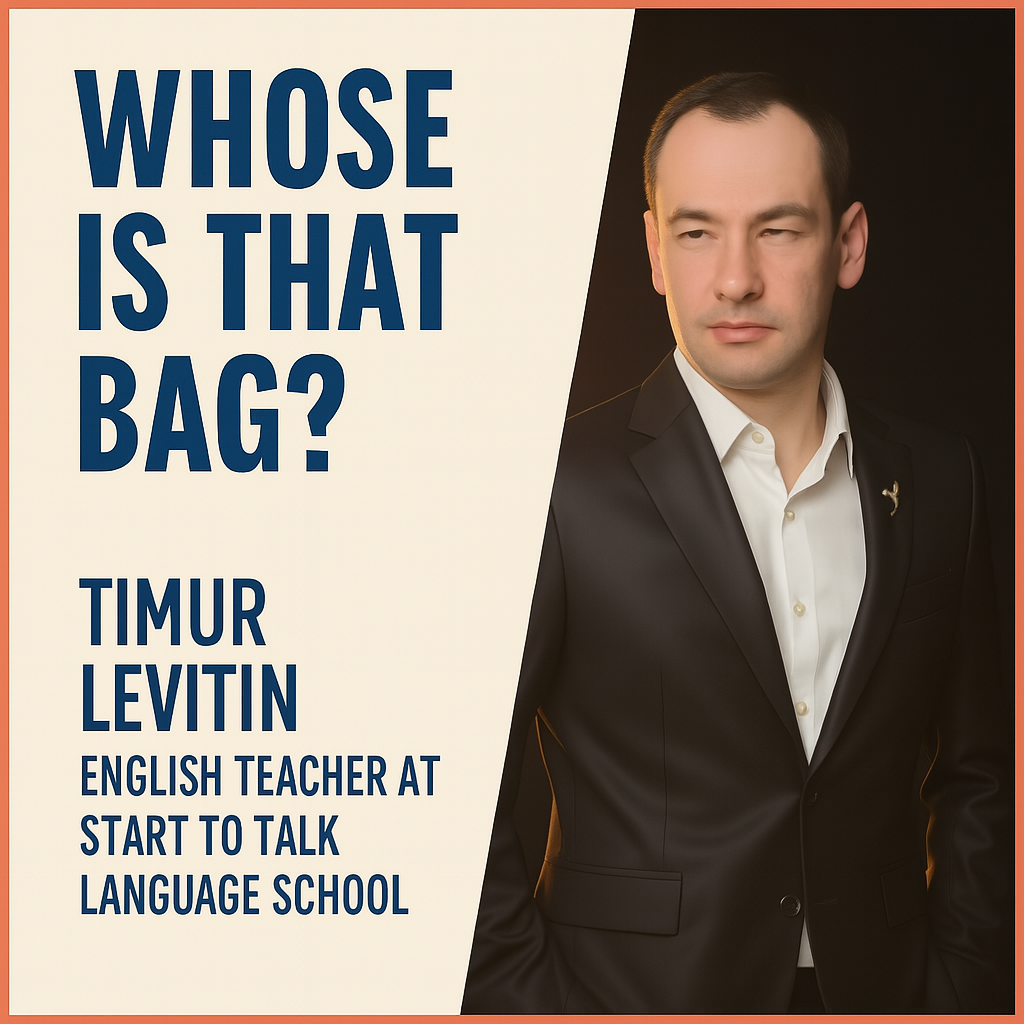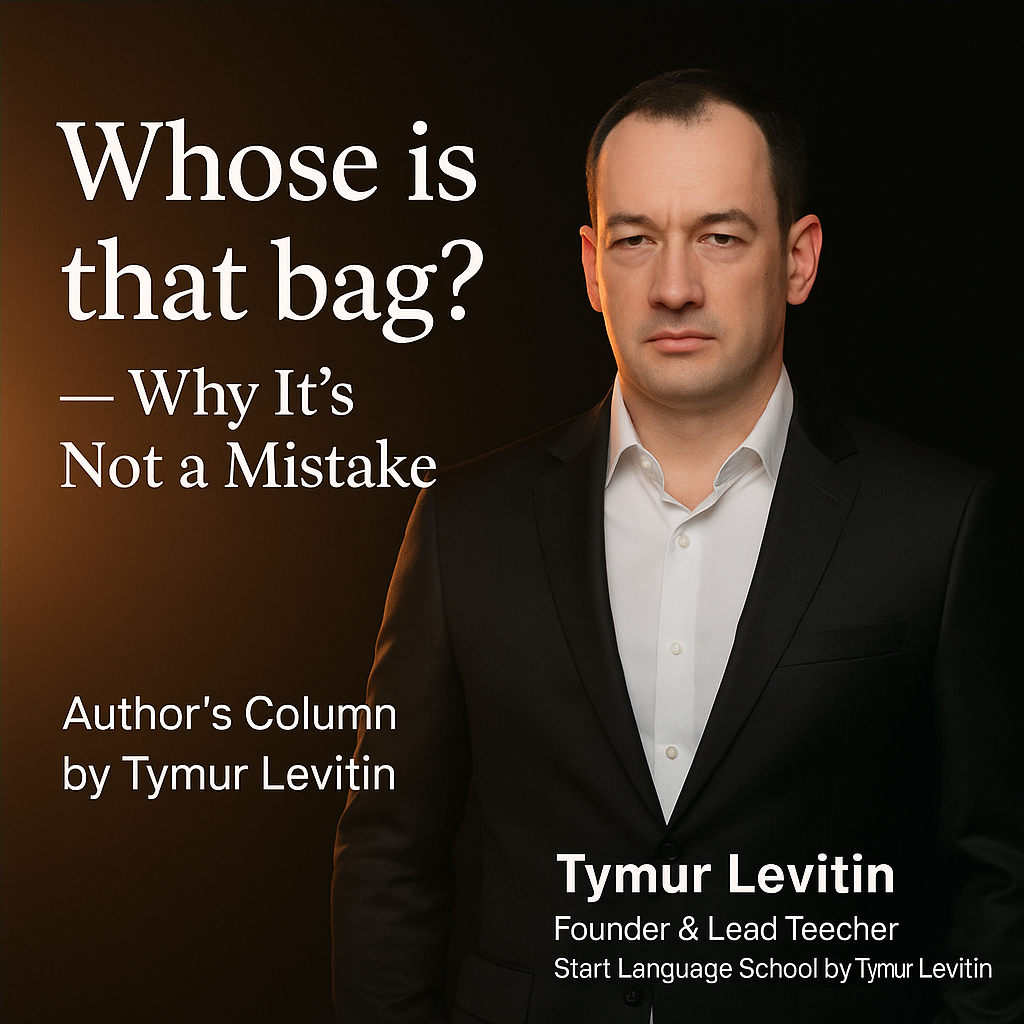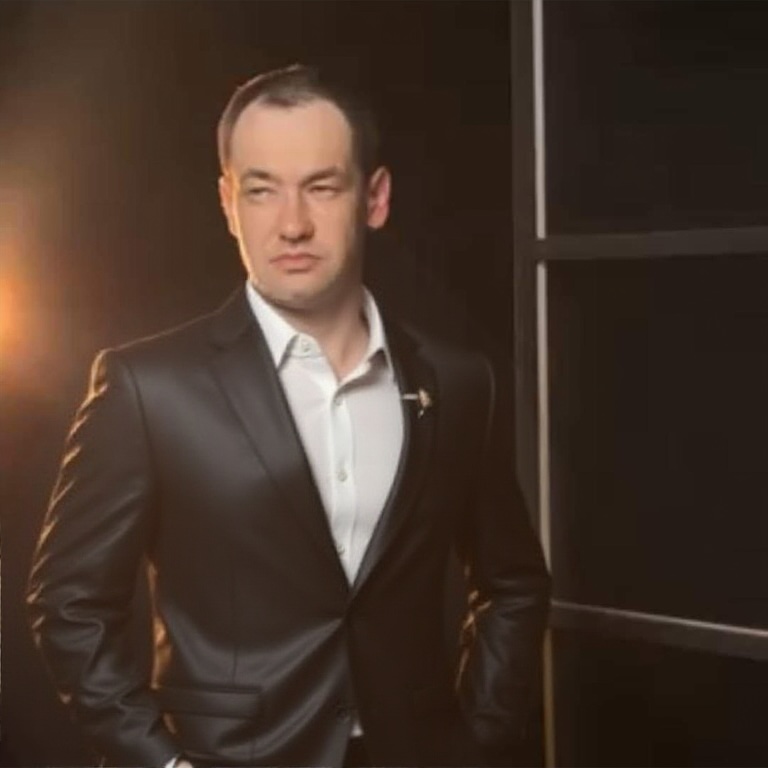Real English. Real Thinking.
Author’s Column by Tymur Levitin, founder of Start Language School by Tymur Levitin and Levitin Language School
A Real Question from a Real Lesson
One of my students once asked me a simple question:
“Is it correct to say: Whose is that bag? Or is it wrong?”
She told me her mother had messaged her saying it was wrong English. That it was a Russian mistake. A “calque.” Something that звучит like English but isn’t real English.
This is not the first time I’ve heard this. And if you’re a learner — or even a teacher — you’ve probably stumbled over it too.
So let’s clear it up once and for all.
The Short Answer: It’s Not a Mistake
✅ “Whose is that bag?” is 100% grammatically correct.
But… it’s not the most common or modern form.
The more standard, conversational version is:
👉 “Whose bag is that?”
So what’s the difference?
Let’s take a closer look.
What Are You Really Asking?
1. “Whose bag is that?”
- This is a question about the object.
- Whose acts as an adjective modifying bag.
- It’s the most common way to ask: who owns that bag?
2. “Whose is that bag?”
- This is a question about the owner.
- Whose acts as a pronoun — the subject of the sentence.
- It shifts the focus from the bag to who it belongs to.
💬 Think of it this way:
- “Whose bag is that?” = I’m looking at the bag.
- “Whose is that bag?” = I’m wondering who left it here.
Both forms are correct. But they emphasize different things.
So Why Do People Think It’s Wrong?
Because in Russian and Ukrainian, we say:
- “Чья это сумка?” and “Чия це сумка?”
And the literal word-for-word translation is: - “Whose is that bag?”
So when students say this in English, some people (especially parents, teachers, or others who learned from strict textbooks) assume it’s a Russianism — a false friend.
Но вот правда:
This structure didn’t come from Russian. It came from English.
You’ll find it in Shakespeare, Jane Austen, and everyday modern speech — especially in British English or formal contexts.
✅ It’s just less frequent today, and that’s why people stop recognizing it.
Grammar Confirms It
Both forms follow correct English grammar. Here’s why:
| Форма | Structure | Role of Whose | Focus |
|---|---|---|---|
| Whose bag is that? | [Whose + noun] + verb + subject | Прилагательное | The object |
| Whose is that bag? | Whose + verb + subject | Pronoun (subject) | The owner |
So no — it’s not broken grammar. It’s not a calque. It’s not a mistake. It’s a choice.
How I Explain It to Students
When this question comes up in class, I don’t correct them. I invite them to look deeper.
I say:
“Let’s compare them. Let’s see where the focus goes. Let’s learn something from this instead of hiding from it.”
Because language isn’t just about rules. It’s about meaning. And sometimes, using the “less popular” form shows you’re not just speaking — you’re thinking.
Последняя мысль
If you’ve ever said “Whose is that bag?” and hesitated — don’t. You’re not wrong. You’re just using a slightly older, more formal structure. And if you understand почему it works — that means you’re learning English the real way.

Related Topics (Coming Soon):
- “I like listening” vs “I like to listen” — What’s the Difference?
- “I am 10 years” vs “I am 10 years old” — Why One Feels Off
- “So do I” and Other Echo Answers That Sound Native
📌 Тимур Левитин is the founder and lead teacher of
Школа иностранных языков "Старт" от Тимура Левитина и
Языковая школа Левитина.
Learn more about his teaching approach.
Category: Author’s Column by Tymur Levitin
© Тимур Левитин

























